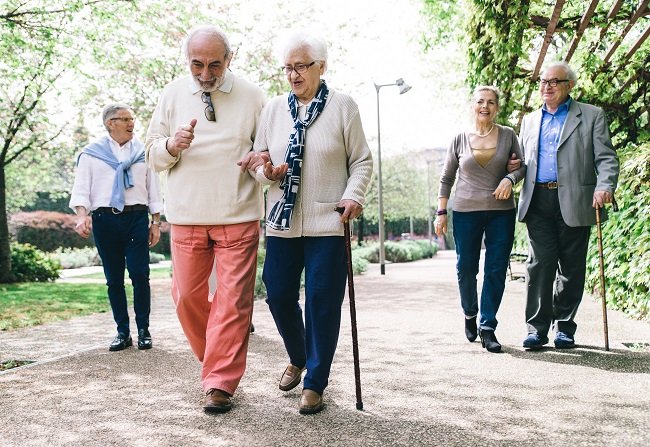This Part 2 and Part 3 speaking topic is all about going out and travel. It asks you to discuss the differences for young and old people, and the value of the experience of outings and travel.

IELTS Speaking Part 2: An Outing
Describe a recent outing you had. You should say:
- where you went
- who was there with you
- what you did
- and explain why you remember this outing.
Part 2 Possible Answers:
Where you went:
I don’t get to go out much these days, but I went to a Valentine’s dinner this year. This is quite rare for me and my wife as we are generally very busy and like to stay home when we have time off.
Who was with you:
We went with our daughter, and we went with 3 other couples that we know locally. We saw all of these couples at Christmas too I think. That was the only other time I can remember going out recently. I must try harder!!
What you did:
The Valentine’s dinner was at a local beach bar. It was quite a big event with lots of tourists, locals and expats. The food was great, it was buffet style so we got to try lots of different cuisines. The local Thai food, which is super spicy, plus a variety of more ‘international’ type dishes. My favourite was the deep fried pork knuckle paired with Thai seafood sauce. That may sound like an odd combination, but it works really well!
Why you remembered it:
The night was memorable for a number of reasons. First I guess because we hardly ever go out! But also, there was a local band playing. Live music is always fun, and I even got up and danced with my daughter for a while. There were fireworks over the beach too, but probably most memorable, a local lad got down on one knee and proposed to his girlfriend in front of the whole bar! That must have been scary! But it ended noisily when she said ‘YES!’.
IELTS Speaking Part 3: Travel and Going Out

- Why do you think people go out frequently?
- Who goes out more, younger or older people, and why?
- Should the government encourage the public to go out by offering incentives?
- What do you think is the role of experience in making someone an expert?
- Do you think travel is as important as reading to expanding a person’s knowledge?
- Is experience more important for teenagers or for older people?
If you answered Part 2 well, the examiner will skip the ‘describe’ question in Part 3, that is reserved for the weaker speakers.
Here I’m going to give you some ideas about how to answer each part.
Part 3 Possible Answers:
Why do you think people go out frequently?
- They are very sociable with a big family or a large group of friends.
- They are very sporting and have a lot of sporting activities.
- They enjoy the arts and often visit museums, galleries, theatre, etc.
- They like to attend religious events regularly.
- They have pots of time (retired or unemployed) and need to get out of the house.
- They don’t like their house or the people they live with!
Who goes out more, younger or older people, and why?
- This depends on the person right! But young people probably go out more in general.
- Young people often have a bigger group of friends, from school, university, clubs, etc.
- Younger people are often more active in their social lives: parties, concerts, dinners, drinks, etc.
- Older people generally go out less, they may have poor health which prevents them, or a smaller circle of active friends.
- Older people may be living on a set income and have a smaller budget for socialising too.
Should the government encourage the public to go out by offering incentives?
- So what does the government gain by people going out? Use of services and businesses is good for tax collection and for the economy in general. Everyone saw the consequences of not-going-out during lockdowns in the pandemic. Lots of financial and social issues followed very quickly.
- But what kind of incentives? Cheap public transport? Free parking? Reduction of taxes for entertainment venues. I’m not sure that these would survive a detailed cost-benefit analysis?
What do you think is the role of experience in making someone an expert?
- Experience is crucial. They say that 10,000 hours doing something makes you an expert. I think that has been over generalised, but there is undoubtedly a strong connection between experience and ability to provide useful information or guidance.
- On the flip side, can you be an expert with little experience? Lots of people on social media think they can be!! But are newly qualified doctors or pilots, for example, able to deal with any situation? Or does that take experience too?
- And does education or qualifications alone make you an expert?
Do you think travel is as important as reading to expanding a person’s knowledge?
- Travel broadens the mind, no doubt. Experiencing other cultures allows people to assess their current knowledge and take on deeper understanding by comparison and reflection.
- Travel can make people less bigoted and less absolute in their beliefs when returning home, so this can have a knock-on effect for their own society. A well-travelled society is more likely to be more tolerant as well as more knowledgeable.
- But reading is cheaper and more accessible isn’t it? And the amount of reading material available today for free is simply astonishing.
Is experience more important for teenagers or for older people?
- Teenagers lack experience. They need new experiences to understand the world and their own place in it.
- Teenagers have often only mixed in relatively similar spaces in terms of knowledge and culture. They need new inputs, ideas and situations in order to expand beyond their current horizons.
- Older people have more experience, and that is important for them as purveyors of wisdom. Their experience is crucial to pass on to younger people since they have a better perspective on life. They have seen trends come and go, love, fear, happiness, rejection. They can stand back and assess with more clarity than a young person.
Hope these ideas for Part 3 have given you something to think about. Practice with a teacher, or friend, or just a video camera and see if you can fluently answer the questions above.
Learn more:
Each week we pick out a series of recent IELTS speaking questions and give you some ideas on how you could answer them. We also show which of these questions relates to the ‘Themes’ in Mastering IELTS: A Theme Based Approach.
The Mastering IELTS module on Travel would be great to improve your score on questions like this.



